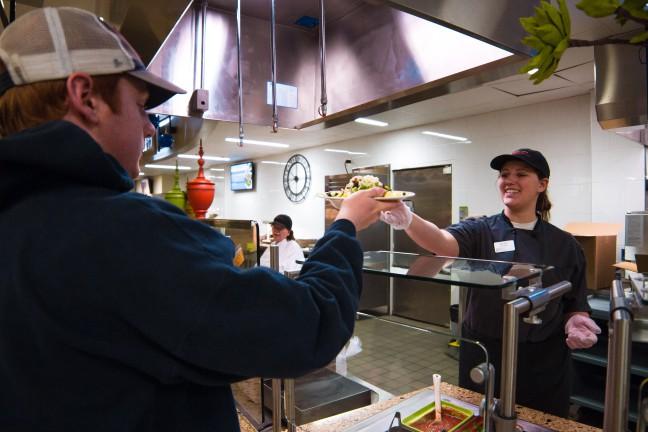The infamous freshman fifteen. Is it real? Is it a myth? Upperclassmen, older siblings, friends and parents constantly throw around the term at incoming freshman during the months of anxiety and anticipation leading to college. But when summer gives to fall, and your new college life commences, your parents and elders aren’t around anymore to regulate and guide your lifestyle choices, and 15 pounds isn’t something that hits you right in the face.
It’s the gradual, prolonged adaptation to unhealthy eating habits that sneak up to us with consequences in areas and ways that we never thought it would. These bad habits can take root in the hectic student daily cycle between academics, social life and health. Albeit the ‘intrinsic’ value of 15 is pretty arbitrary, and the phenomenon doesn’t always impact everyone, whether it be 4 pounds, 20 pounds or no change in weight at all, unhealthy lifestyle habits have adverse effects on our lives, which can ultimately undermine academic performance, and the continuation of these habits throughout our university lives can accumulate into serious health issues in the future.
But gaining a few pounds freshman year — especially within the first semester — might not sound like a huge deal; it’s the ‘trial’ semester. It’s valid to say that you’re making a huge transition in your life and you should focus on getting settled in, and not worry about gaining a couple pounds. But for some, especially those who struggle with body image and self-confidence, the fear of “the freshman 15” may lead to serious unhealthy eating habits and even cases of depression or anxiety. It’s important for students to recognize that an unhealthy lifestyle can not only impact our physical attributes, but also influence our ability to concentrate and do well in school.
What are these unhealthy habits? It’s when “treat yo-self Friday” turns into a daily practice, when you munch on potato chips and down Red Bull to accompany you on late-night assignments that you procrastinated, when you devour a greasy mac n’ cheese pizza from Ian’s after a drunk Friday night, and order Insomnia Cookies to your dorm religiously.
Excess alcohol intake and the lack of exercise and sleep are also key contributors. With the extra stress of school, learning to how to conduct yourself as an adult and finding your place in this large community, it’s easy to reward yourself with these convenient, highly caloric and unhealthy foods. While completely cutting these foods from your diet would greatly benefit your health, it would undermine the true, unapologetically greasy, delicious and dysfunctional college experience.
Everyone has a different college experience regarding health, everyone would benefit from increased knowledge on nutrition. “Freshman Fifteen” shouldn’t be accepted as a norm. A critical part of becoming independent is learning to manage your lifestyle — which includes the foods you consume. Students should learn how to manage, regulate and cook their own meals. Cooking workshops, lectures as well as programs on nutrition and health would not only educate students but also foster more social opportunities. Students can socially benefit by cooking meals together, trying new recipes or having potlucks.
How healthy eating has become an excuse for unhealthy obsession
Dining halls should also offer an array of affordable, fresh fruits and vegetables for students to purchase and prepare meals with. The perceived social acceptance of the “freshman fifteen” phenomenon shouldn’t be an excuse to continue unhealthy habits. Instead, it should encourage and promote healthier lifestyles. Making these incremental changes in the student diet by implementing a positive lifestyle through the institution will only improve student life — and in turn, the ability to concentrate and do well academically.
Ayaka Thorson ([email protected]) is a freshman who is currently undecided.














